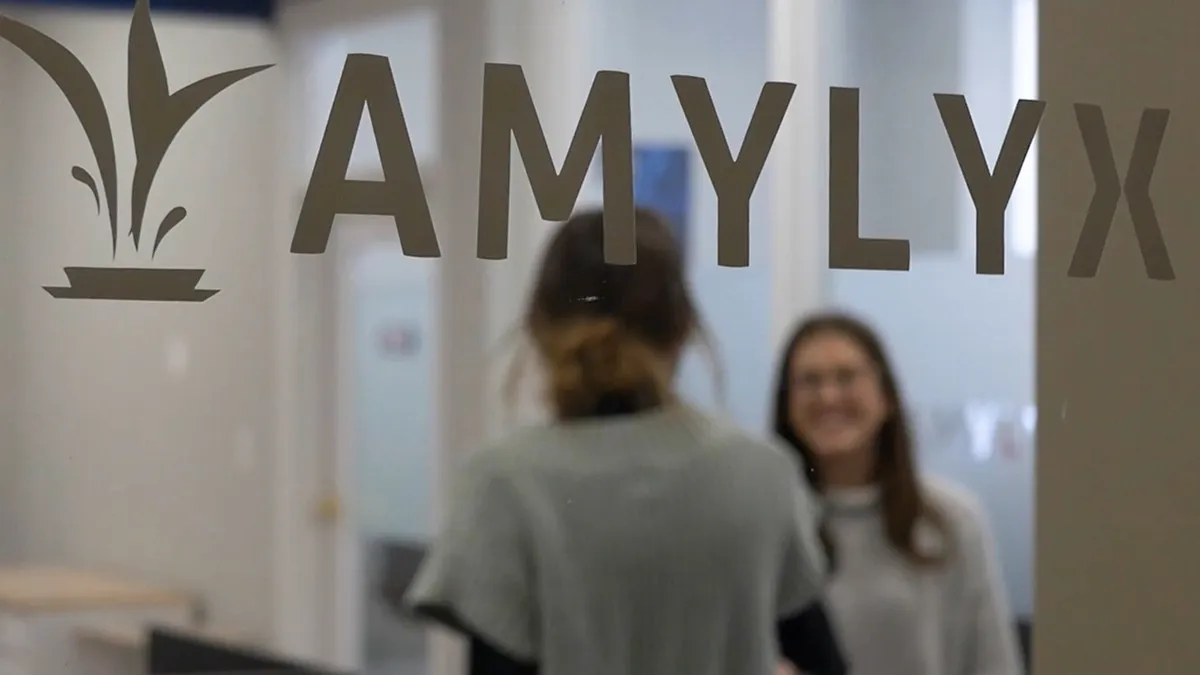In September, Lawrence Faucette, a 58-year-old man dying from heart disease, became the second person to receive a genetically altered pig heart in a groundbreaking transplant. Now, a drug discovery made possible by amyotrophic lateral sclerosis (ALS) activists is keeping it beating.
The investigational drug, tegoprubart, an anti-CD40L antibody that targets inflammation, was the first drug discovery by the ALS Therapy Development Institute, funded by Augie’s Quest to Cure ALS, a patient-advocacy group that’s raised about $160 million for research into this progressive neurodegenerative disease.
Tegoprubart targets a protein linked to the body’s immune response and in ALS is thought to reduce inflammation in the brain, spinal cord and muscle that drives the disease. A phase 2a trial conducted by Eledon Pharmaceuticals, a clinical-stage transplant and immunology company that acquired the treatment, found that the drug successfully reduced 23 of 32 elevated protein biomarkers associated with ALS in some patients and also unexpectedly slowed disease progression.
Faucette’s care team at the University of Maryland Medical Center is now using the investigational molecule as part of a drug regimen alongside conventional immune-suppressing drugs.
But Eledon believes the treatment could have broader efficacy beyond ALS, and is now testing the drug to prevent organ rejection and damage after transplant. In addition to the pig heart transplant, it’s also conducting a phase 2 trial testing the drug in kidney transplant patients along with other preclinical work.
Breaking new ground
Although this is the second transplant using a pig heart, it’s the first one using tegoprubart. The first pig heart transplant, performed on 57-year-old David Bennett, used a different anti-CD40 ligand from Kiniksa Pharmaceuticals along with traditional anti-rejection drugs. Bennett lived for seven weeks after his January 2022 surgery.

A review found his death was likely due to several factors, including his severely compromised immune system that may have blunted the effects of the anti-rejection drugs. The pig heart also had a latent infection with porcine cytomegalovirus (PCMV), which could have played a role in its ineffectiveness, Dr. David-Alexandre Gros, Eledon’s CEO, said. This time the team screened Faucette’s new heart for viruses before the procedure.
They hope lessons learned from the earlier case will lead to better success for Faucette’s transplant and pave the way for similar xenotransplantation in the future.
Improving access to lifesaving treatments
The ability to transplant organs from animals into people could improve the odds for the more than 100,000-plus patients on the national waiting list for organs.
“There are about 5,000 Americans a year that die waiting for an organ,” Gros said. “We’re working as a company to address that in two ways. The first way is xenotransplantation, allowing a new source of organs. The second is by trying to extend how long organs survive.”
The average organ transplant recipient today in the U.S. is 50 years old, and transplants typically only last 10 to 15 years.
“If you do the math, the average person is going to need two or three organs or more in order to live a normal lifetime,” he said. “There aren’t enough organs.”
Animal-to-human transplants bring numerous challenges, and one of the primary ones is keeping the human body from attacking foreign tissue. United Therapeutics Corporation’s subsidiary Revivicor provided the heart for Faucette’s procedure after genetically modifying it to knock out three genes that can prompt rapid rejection. Even so, the immune system is adept at spotting foreign invaders, so anti-rejection drugs play a crucial role, Gros said.
“In xenotransplantation the immunosuppression required is more than can just be achieved using today’s approved drugs,” he said. The transplant team chose tegoprubart to boost the effects of traditional anti-rejection drugs because of its early track record in pre-clinical and clinical transplants, including two other ongoing clinical trials in transplantation, Gros said.
Eledon also has a collaborative research agreement with eGenesis, another xenotransplantation organ development company, to test tegoprubart in preclinical trials for the treatment of organ failure related to kidney, heart and islet cell transplants.
Gros said company officials are excited that tegoprubart is playing a part in this growing field and this historic transplant.
“We’re equally appreciative of the patient and his willingness to participate,” he said. “That’s true across all of our trials. We do not take lightly the trust that patients are putting in us and the medical system as they decide to participate.”


















